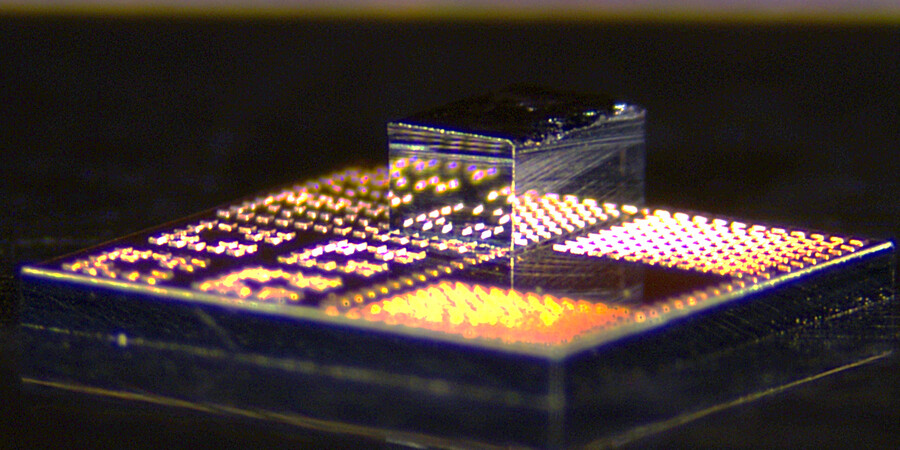Adam Zewe | MIT News Office
Every piece of data that travels over the internet — from paragraphs in an email to 3D graphics in a virtual reality environment — can be altered by the noise it encounters along the way, such as electromagnetic interference from a microwave or Bluetooth device. The data are coded so that when they arrive at their destination, a decoding algorithm can undo the negative effects of that noise and retrieve the original data.
Researchers at MIT, including AI Hardware principal investigator Muriel Médard, Boston University, and Maynooth University in Ireland have now created the first silicon chip that is able to decode any code, regardless of its structure, with maximum accuracy, using a universal decoding algorithm called Guessing Random Additive Noise Decoding (GRAND). By eliminating the need for multiple, computationally complex decoders, GRAND enables increased efficiency that could have applications in augmented and virtual reality, gaming, 5G networks, and connected devices that rely on processing a high volume of data with minimal delay.
Complete article from MIT News.
Explore
Lisa Su ’90, SM ’91, PhD ’94 to deliver MIT’s 2026 Commencement address
Kathy Wren | MIT News
An electrical engineer by training, Su is the chair and CEO of the semiconductor company AMD.
New 3D Chips could Make Electronics Faster and more Energy-Efficient
Adam Zewe | MIT News
The low-cost, scalable technology can seamlessly integrate high-speed gallium nitride transistors onto a standard silicon chip.
Anantha Chandrakasan Named MIT Provost
Kathy Wren | MIT News
A faculty member since 1994, Chandrakasan has also served as dean of engineering and MIT’s inaugural chief innovation and strategy officer, among other roles.




